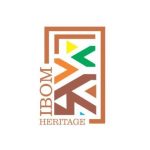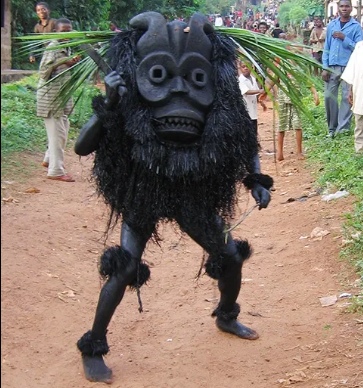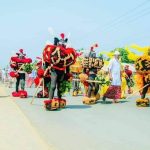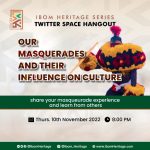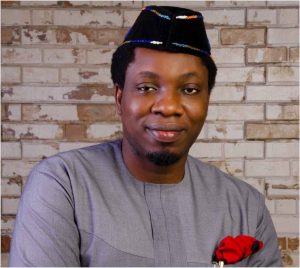The Ekpo society is one of the foremost secret societies in the Ibibio society. ‘Ekpo’ means ‘ghost of an ancestor’ literally. As a cultural society of the same name, the Ibibios framed Ekpo as a law enforcement society in the cultural setting. More specifically, Ekpo society was an instrument for managing ancient Ibibio society and up to early post-colonial times.
Most of the famous men of the Ibibio society were members of the Ekpo society. Some were chiefs, some family heads, some youth leaders.
This group was so effective that the community held them in high regard. Non-initiates, women and children held them in great fear also.
Was the Ekpo a job?
The Ekpo members met in what we call ‘Afé Ekpo’, the Ekpo tent or meeting hall. Here, they made decisions that were binding on all members of the community. Since members were mostly leaders of the land, this was a major decision making forum.
The Ekpo also performed formal functions in historical Ibibio society. It ensured that the community carried out judicial verdicts to the letter. You can call them police of the precolonial era.
Ekpo was and is never an occupation, but simply a socio-cultural concept handed from ancestral Ibibio. Masqueraders were and are your usual everyday member of the community who is an initiate. They did not play ‘ekpo’ for daily bread in time past. Recently though, masqueraders have infused collection of cash appreciation into the displays – as an entertainment.
Did Ekpo Have Supernatural Powers?
In recent times, the Ekpo masquerade has been more of a cultural display that hits the streets during important cultural occasions, on demand and during the end of year ‘ukapadisua’ (ukapisua) celebrations.
As with masquerades in other parts of black Africa, the use of magic does get engaged in Ekpo displays. Although this has been merely for fun than for any other motive. Whether the magical powers can be channeled into something harmful is topic for some other research.
Get the book ‘Ibibio Nation: History & Culture’ by Oto-Obong Uwah via this link.
Written by Brownson Nseime, from Jabborro PR
